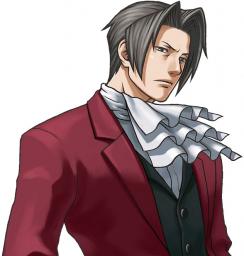Case
Stating the Inevitable
When I was interning, I ran across someone who had already graduated but was now applying for jobs. She went on an interview where the principal asked her, "Do teachers get burnt out?" I know that teaching can be stressful sometimes and burn out can happen and that you should be honest in interview. What is a good way to respond?
Solution #1
Top Solution
Like you stated, I would be completely honest and say that yes, teachers can obviously get burnt out. The job can be stressful, with many hours of work outside of the classroom and immense responsibility for the achievement of all of your students. In addition, there are many factors that can effect student achievement that are out of the teachers control, such as students who come to class tired or hungry. However, this is all part of the job and a new teacher should be aware of this risk of burnout and realize that, while things may be very stressful at times, the good times outweigh the bad (and if the teacher does not believe this, they may need to look into another career choice.
Perfectly put. Be honest with the principal. Even interning students have heard all about teachers being burnt out.
Perfectly put. Be honest with the principal. Even interning students have heard all about teachers being burnt out.
That is the best response you could have in an interview,
Solution #2
Be honest, as a principle I am sure he already know the struggles of a teacher but he wants to know your thoughts. Simply but it is a stressful job but it is truly worth it. The job wouldn't be worth it if it was no challenges you have to face and hard work you suffered from. Tell him all of the great moments that can't be forgetting as your experiences as a student teacher.
Being honest yet positive from it. Good one.
Solution #3
While I am in agreement with the above listed solutions, I would take this as an opportunity to mention your hobbies and interests. One way to set yourself apart in an interview is to show your personality. This can be achieved by sharing what you do outside of school that allows you to deal with the stress and pressure that comes from dealing with a diverse group of students and parents on a daily basis. For me, this is playing sports, working out at the gym, and enjoying outdoor activities such as hunting and snowboarding.
Solution #4
I would respond that some teachers may get burnt out over the work, but its the way a teacher should handle the burnout that is important and to just be patient that the time for relaxation is just around the next bend.
Solution #5
I think this could also be an interesting question that you could pose to the principal. Does the principal feel as though teachers can get burnt out? What does the principal focus on to make sure this feeling doesn't happen with their faculty. I have always found that asking meaningful questions to the principal in the interview is impressive and they appreciate the challenge. It shows you're really invested in the school and interested in hearing what they have to say.
Solution #6
This is a "trap question". Trap questions are used by interviewers to test the character of their potential employees. It's well known that teachers get burned out on the job. If you answer no, then the interviewer will take note that you're lying about certain parts of the job to look better in their eyes.
However, you can turn this particular question around by adding onto it. If you say "Teachers definitely get burned out on the job, but...", you can remark how teaching has an "intrinsic reward" to it that keeps teachers going. That is to say, even if a teacher gets tired of working, they can keep going based on the fact that they signed up to teach children and give them a good education and future, and that thought (mixed with some rest and destressing) can reignite the flame in their hearts.
Solution #7
Being overwhelmed is understandable in all professions, especially in teaching. I would bring this honesty to light but also reflect on how this shouldn't effect teaching.
Solution #8
I would say yes I know that teachers can get burnt out and tired, but the great thing about teaching is that about the time you start to feel burnt out you get a break. Teachers get a week for thanksgiving, 2-3 weeks off for Christmas, a week for spring break, and then 2-3 months for summer. This is a great perk about being a teacher. Also if you truly love what you do and love your students then I do not think that getting burnt out to the point of not doing your job correctly or want to quit.

